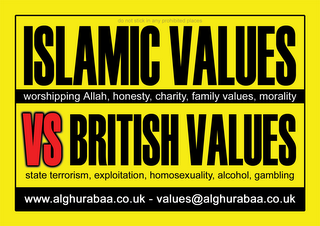The Trouble with Islam Today: A Muslim's Call for Reform in Her Faith by Irshad Manji (Amazon Link)
Blood Revenge: Family Honor, Mediation and Outcasting by Joseph Ginat (Amazon Link)
On the face of it, these two books deal with two completely different topics, using two completely different approaches. However, I found that they complemented each other in many ways.
Manji’s main argument is that Arabic “foundamentalism” (ie, founding fundamentalism) is responsible for most evils in Islam today. That is, it is not Islam itself which is bad, but rather the Arabian tribal mentality which existed before Islam and had swept throughout the lands conquered by the Arabs.
I knew beforehand that Muslims see the pre-Islamic period in Arabia as one of “ignorance”. Manji adds that Arabs expand this view to include anything pre-Islamic, even outside the Arabian desert.
The Koran is not one-dimensional. When looking at the relationship between men and women and between Muslims and non-Muslims there are verses in the Koran that point towards equality and verses that point towards male and Muslim domination.
Manji claims that it is the Muslims themselves who choose where to go with the Koran, they're not under its yoke. That is, Islam is not being “hijacked”.
Though she does not mention it, I think this is backed by the Muslim concept of Ijama – general agreement. Goldziher in his Introduction to Islamic Theology and Law, explains that whatever is accepted by Muslims as right and true will by definition be right and true. Originally this was anything accepted by the general populace but was then minimized to the religious leaders of the Muslim nation. “Hijacking” is therefore impossible.
The argument of “It’s the culture not the religion” is one which keeps on repeating itself when dealing with Islam.
But, like this cartoon from Dry Bones demonstrates – does it really matter?

Manji’s argument is that it does matter. By focusing on the culture and not the religion, she hopes to enable and encourage reform in both.
She uses the concept of Ijtihad (independent thinking) to prove that it is possible to reform Islam from within. In this case, though, her message should be directed only at Muslims. Manji says, or even demands, that non-Muslims do not stay quiet just for fear of being called “Islamophobes”. I agree that non-Muslims should stand up against immorality, whether it is done in the name of religion or not. However, it is not up to non-Muslims to tell Muslims which religious convention they should be using to reform their religion. That is an internal Muslim issue.
Is it just culture or is it really the religion?
In his book, Ginat talks about four issues in Arab tribalism – blood revenge, mediation, outcasting and “honor” murder. Mediation and outcasting seem to be of less interest, especially as mediation is a common practice all over the world, and outcasting is basically only relevant when you deal with the issue of blood revenge.
According to Ginat, who brings Koran quotes to prove his point, blood revenge and “honor” murder are not supported by the Koran.
The Koran differentiates between intentional and accidental murder, where for intentional murder the murderer should be killed and for accidental murder a price paid.
The Koran’s laws for sexual purity also do not match the “common Arab law” – according to the Koran both man and woman who have sex when they are not married are punished by flogging. When dealing with infidelity – both man and woman are executed. For execution, you need 4 witnesses who have seen the couple in the act of infidelity. This is taken by Muslim scholars as a way of “forcing” Arab society to cut down on executions. It is actually interesting, since Jewish law also has a need for witnesses for various crimes, who have seen the crime, and warned the criminal. Since you usually do not have such witnesses, it makes executions almost impossible.
The “trouble” with Islam, as Manji puts it, is that this is only the law in the book, not the law in practice. I find this quite ironic, since I have already read in various books on Islam that Muhammad fought against the immoral tribalism of his time. It seems that he didn’t really succeed.
Bedouin and Arab society is based around the extended family. The “chamis” is a unit of five generations stemming from the father. In Jordan, btw, this has been cut down to three generations by order of King Hussein, which shows that (a) reform is possible, sometimes quite easily and (b) reform can be done from within. All the people in the chamis are responsible for each other. Their actions reflect on their fellows and their fellows are responsible for them.
This is where blood revenge comes in. The “law of the desert” demands that for every killing, intentional or accidental, a person from the other “tribe” will be killed in turn. According to Ginat, this comes to balance the warring tribes.
It is interesting to note that by the Bedouin, blood revenge is still the order of the day, while the sedentary rural Arabs will usually accept a settlement where the killer’s chamis pays a “ransom” instead.
The reason is quite simple: in settled society, where a person is tied down to land or business, and where it becomes impossible to call up work and say you won’t be coming because your 2nd cousin just ran over a kid in the street – compromises are sought after.
There are two types of honor is Arab society – a “man’s” honor, which is based on his deeds and can go up and down, and the “family” honor, which is based on the women’s sexual behavior. This last type of honor can only go down, and is the reason for “honor” murders.
Ginat tries to explain why sometimes a woman is killed for loose sexual acts and sometimes not. His theory is there is one major requirement for ‘honor’ murder: somebody from the ‘injured’ group must come with a public complaint to the woman’s direct relatives. The ‘injured’ group in this case is the family of the woman, as it is their honor that is being tarnished. If the man who had sex with the woman outside marriage will not marry her, the only remaining “action” is to kill her.
He brings various cases where the family turns things around and blames the man. This can easily happen is the man is from another religion (turning it into a witch-hunt). Not all Muslim cultures blame the woman for shaming the “family” honor. In Chechnya, for example, if the man refuses to marry a woman he’s had sex with, he will be publicly humiliated by the woman’s relatives.
Unlike the popular perception, “honor” murder is not something the father (or brothers) do without feeling. Being in this type of culture, they feel they are forced to do it, whether they want to or not. Ginat brings cases, for example, where a brother killed his sister after he was publicly called to protect the family honor, but then killed himself, not being able to deal with what he had just done.
After reading this book I started wondering about blood revenge. It is obvious that "honor" killings take place in Europe, but what about other aspects of Arab tribalism? Just this past week, a Pakistani Norweigan killed the woman who he blamed for killing his girlfriend, and seriously injured her boyfriend. Was this blood revenge or "a fit of revenge"? Is there a difference between the two? I would think that just as "honor" murder is being investigated today in Europe, it is important to verify how common is blood revenge.
The two books are very different from each other. “The trouble with Islam” is written in the form of an open letter, which is very easy reading. It throws ideas at you one after another, though sometimes they seem to contradict each other.
"Blood Revenge", on the other hand, is a learned study. It studies several practices in Arabic society from an anthropological point of view, bringing many case studies. The author brings up several theories which he tries to prove throughout the book.
Related links:
Muslim Refusenik - Irshad Manji's site
Ijtihad - A Return to Enlightenment - site by Dr. Muqtedar Khan
Ijtihad on Wikipedia
"Honor" Murder on Wikipedia
Honor Crimes Project
International Campaign Against Honor Killings

